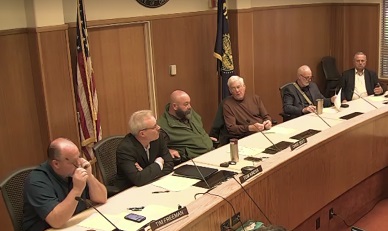
On this day, July 12, 2013, the Oregon Fish and Wildlife commission adopted provisions of a lawsuit settlement that will make the state the only one in the West where killing wolves that attack livestock must be a last resort.
 Post an Event
Post an Event
| TILLAMOOK COUNTY FAIR - 100 YEARS OF PIG N'FORD |
| Wednesday, August 6, 2025 at 10:00 am |
| The Tillamook County Fair received its recognition as one of the top ten Blue Ribbon Fairs in the nation due to its uniqueness; offering so much for fairgoers to enjoy free along with their paid admission. Fairgoers can enjoy all of the Open Class and 4-H/FFA exhibits that Tillamook County residents have prepared the year prior, free entertainment and concerts, live exotic animal displays, and a whole lot more!
FOR MORE INFORMATION
tillamookfairoffice@gmail.com
(M-F, 8 AM-5 PM) at (503) 842-2272.
Reminders:
NO OUTSIDE FOOD OR DRINK
All bags are subject to search
For the safety of all present, only trained service animals are permitted to enter Fairgrounds property. A trained service animal is any guide dog, signal dog, or other animal individually trained to do work or perform tasks for people with disabilities. |
| 4603 East 3rd Street
Tillamook, OR, 97141 |
Budget is Mission Focused
Governor Tina Kotek released her
proposed budget for the 2023-2025 biennium. She calls it a “Mission Focused†budget to build more housing, reduce homelessness, increase access to mental health and addiction services, and improve education outcomes. She says it “provides a roadmap for how we are going to reach our state’s long-term goals.â€
In response, Senate Republican Leader Tim Knopp (R-Bend) stated, “According to the most recent revenue forecast, Oregon families will receive an average of $5,200 back on their taxes in the form of a surplus credit known as the “Kicker.†I’m relieved to see that the Governor’s proposed budget doesn’t pull money from the Kicker – it’s the right thing to do.â€
However, Senators Lew Frederick (D-Portland) and Kayse Jama (D-Portland) seem to be on a quest of their own. On the radar for Oregon taxpayers is
SB 774, which would allow the State to keep the tax "kicker" of overpaid taxes beyond what the State budgeted to collect, if
SJR 26 is passed by voters to amend the Constitution.
A D V E R T I S E M E N T

A D V E R T I S E M E N T
“The Republican Majority worked to enshrine the Kicker in Oregon’s Constitution in the 1990’s and we are still committed to protecting it today,†added Senator Kim Thatcher (R-Keizer).
The House Republican Caucus said they are optimistic the Governor’s budget does not call for tax increases, but remain concerned that Governor Kotek and her agencies will raise fees on hardworking Oregonians. While the Governor’s budget does not take the Kicker, they are committed to returning these hard earned dollars back to Oregon taxpayers.
Governor Kotek’s two-year budget proposal is a $32.1 billion request, which represents a 8.76% increase over the 2021-2023 legislatively approved budget.
Oregonians are experiencing an inflation rate over eight percent and economists are predicting a mild recession over the next year. The Governor’s budget reflects the financial vulnerability individuals are feeling on a daily basis. House Republicans believe the state budget should look more after Oregon families than our state bureaucracy, and are disappointed there was no initial mention of other crises impacting our state such as transportation backlogs, a severe drought impacting our agriculture industry, public safety in our communities, or Oregon’s severe public defender crisis.
Senator Daniel Bonham (R-The Dalles) agrees, “Oregonians across the state feel the impacts of inflation and other rising costs. They deserve to spend their hard-earned money how they see fit – to plan for emergencies and spur the economy.â€
Even though both houses see value in the budget, the House Caucus wants to see reforms to the Oregon Department of Education. They also point towards the Governor’s proposed homelessness initiative as not reaching beyond the urban centers of our state. “If Governor Kotek is going to stay “Mission Focused†on being a Governor for all of Oregon, this must start now.â€
To overcome the predicted shortfall, Governor Kotek has recommended keeping the existing $2 billion of reserve funds in place, and redirect $765 million that would have been automatically added to these reserves into targeted investments aimed at better serving Oregonians in her focused areas.
The Governor's budget reflects the work of the Racial Justice Council on the development of state agency budgets as a strong, ongoing partnership in her administration. Thus, her Mission Focus, and so begins the battle for our pocketbooks.
--Donna Bleiler| Post Date: 2023-01-31 16:52:56 | Last Update: 2023-02-01 00:54:24 |
Few guarantees with life-time repayment
Representative Paul Evans (D-Independence) introduced
HB 2780, which creates the Guaranteed Opportunity Program to provide college funding by 2043. Under this bill, the State of Oregon would have 20
years to implement an in-state post-secondary education, training and workforce development loan program to qualified individuals. In exchange for the upfront payment of tuition and fees, textbooks, and housing costs by the State, a degree-seeking student would commit to repaying a set percentage of their post-education income to the program.
HB 2780 introduces a student and institutional funding system where high school graduates or resident taxpaying students attend higher education in a degree program and the state postpones the payment of costs of attendance, including tuition, housing, textbooks and fees, in exchange for payment of a set percentage of future salary. The percentage is based on the type of degree ranging from two to five percent of adjusted gross income with a payment period from three month after completing the degree to the later of age 65 or retirement.
Every two years the State Workforce and Talent Development Board will analyze the workforce and make adjustments to the percentages of future income that participants are required to pay. It places the cost of an education on the recipient and the amount of loan forgiveness at age 65 is based on the income level of the recipient. The bill allows the commission to engage a collection agency if failure to make payments occurs.
A Guaranteed Opportunity Program Implementation Fund is administered by the commission and funded by the legislature, the sale of bonds, and the repayment by participants. The cost to the state would be administration of the program and any unrepaid amounts at the participants retirement or age 65, whichever is later. The percentage of repayment is based on the level of degree obtain, not the amount of income, so repayment amounts will vary.
The Commission pointed out in testimony that the program is similar to a small pilot program proposed by the Office of Student Access and Completion 10 years ago. The complexity of this legislation requires that analysis be revisited to be able to provide information about potential program structures and costs. In addition to structures or costs, there is the question of repayment of individuals out-of-state or out-of-country, as required by the bill.
A D V E R T I S E M E N T

A D V E R T I S E M E N T
Representative Evans states, “While 17 states have alternative student loan programs, the Guaranteed Opportunity Program is the first to have a fixed repayment agreement and term, which is desperately needed to balance the responsibility of repayment against the needs of the economy, the State and society at large. We can provide a way forward that works for everyone by implementing the Guaranteed Opportunity
Program.â€
However, the Commission suggests the bill is putting the cart before the horse. HECC recommends that, prior to convening a large public task force, or setting lifetime repayment rates and time periods in statute, that an actuarial analysis be conducted to determine potential program costs and returns based on a number of variables, including the repayment rates, enrollment projections, projected higher education costs, and wages. In particular, there may be a self-selection effect under the current payment details, where projected higher income earners do not enroll in the program, making the program more costly on a per capita basis. The bill calls for a task force to perform these functions without an actuarial analysis.
The program may not eliminate the life-time of education debt, but Evans claims the Guaranteed Opportunity Program ensures access to higher education for Oregon’s students. “We must support our economic and workforce needs while making it possible for them to buy homes and raise families." He contends it will create opportunities for non-traditional Oregonian students to access fair financing, balanced and simple repayment, and economic opportunities that are often attached to post-secondary education, training, and workforce development. This would make it possible for parents and mid-career professionals to go back to school for first time or additional academic programs.
--Donna Bleiler| Post Date: 2023-01-27 11:44:30 | Last Update: 2023-01-27 17:46:24 |
This is an issue for voters
Senators Sara Gelser (D-Corvallis), Floyd Prozanski (D-Eugene), and Michael Dembrow (D-Portland) are chief sponsors of
SB 579. They are again trying to bypass voters to restore the voting rights of incarcerated felons so they can register and vote while serving time in prison. Proponents say it will help connect the prisoners with the community.
People are in prison for violating other people’s rights and to protect society from harm they may perpetrate. It is the consequences they face. There has to be some justice for crime if we are to live in a just and peaceful society. Does the judicial system if convicted criminals face little consequences.
A person who has been lawfully convicted of a felony has forfeited their right to vote according to the Oregon Constitution, Article II Section 3, passed in 1944. Voters approved the phrase "unless otherwise provided by law," however, voters didn't really have a choice.
Voters originally rejected the measure in 1942, which used the words denying voting privilege to “any idiot or mentally-diseased person.†This language was already in question, and in 1944 mentally-diseased person was replaced with “insane person†Over the years idiot and insane person has taken on a number of meanings,
In 1980, voters passed another amendment. The ballot measure read:
- PURPOSE - Measure proposes constitutional amendment to eliminate present language which prohibits voting by an “idiot or mentally diseased person,†changing it to guarantee full voting rights to mentally handicapped persons, unless they have been declared in the manner provided by law to be incompetent to vote.
A D V E R T I S E M E N T

A D V E R T I S E M E N T
However, prior to 1980 there was no period (.) in Section 2, making the “unless otherwise provided by law†apply to the whole Section. But, in 1980, drafters inserted a period separating the “unless†statement to only apply to convicted criminals, deceiving voters.
- Article II, Section 3. Rights of certain electors.
- A person suffering from a mental handicap is entitled to the full rights of an elector, if otherwise qualified, unless the person has been adjudicated incompetent to vote as provided by law. The privilege of an elector, upon conviction of any crime which is punishable by imprisonment in the penitentiary, shall be forfeited, unless otherwise provided by law
The majority of felons are in prison due to a lack of competency and no civil responsibility or respect. If Section 3 is meant to apply “unless otherwise provided by law†to incompetent persons as voters were told, then shouldn’t it apply both ways and require convicted persons also be required to pass a competency test?
Prison is a time of rehabilitation, to gain and learn what civil responsibility means. The bill also allows registration at the last address lived at, which can cause multiple unrelated people registered at one address that don’t all live there, and interfere with voter roll cleanup efforts.
In many states felons are not able to vote even after being released from prison. Oregon restores voting privileges once they have paid their debt to society. This is an issue for voters, not for a committee that is biased because they sponsored the bill.
The Senate Committee On Judiciary will have a public hearing on
SB 579 on January 26 at 1:00 PM to hear testimony. Join the War Room at Ike Box and register to testify, or
submit testimony by email.
--Donna Bleiler| Post Date: 2023-01-24 10:06:42 | Last Update: 2023-01-24 10:07:56 |
Honoring the 50th anniversary of Roe v. Wade
On the 50th anniversary of the
Roe v. Wade decision and six months after the U.S. Supreme Court overturn the decision, Oregon Senate Democrats are committing to advancing reproductive freedom in Oregon.
“Access to abortion and reproductive care are essential to the health, safety, and prosperity of our communities. With threats to these services being enacted around the country, Oregon must continue to be a leader for reproductive freedom,†said Senator Deb Patterson(D-Salem).
There is the perception that a baby that is miscarried is a human being, but if it is unwanted, it’s a fetus that ceases to be human, otherwise abortion rights could be compromised. In Oregon, an unborn baby is a person when a pregnant mother is murdered, but if you abort the baby willingly, it ceases to be a person.
Perhaps the Democrat caucus doesn’t care to share the real story of Jane Roe, a bi-sexual waitress named Norma McCorvey that had no abortions but three children placed for adoption. Then there is the case that she lied on the witness stand. The Atlantic reported that McCorvey believed that abortion ought to be legal for precisely three months after conception, a position she stated publicly after the Roe decision.
The Supreme Court opinion was mostly a doctor’s rights case -- a doctor’s right to prescribe what he thinks his patient needs. So how is it that
Roe v. Wade is used to defend a woman’s right to abort an unwanted child up to time of birth, and after birth in a couple of states?
“Every Oregonian should get to choose when and how they start or grow their family,†said Majority Leader Kate Lieber. “The decision whether or not to have an abortion is deeply personal, and politicians have no right to make that choice for anyone.â€
While abortion remains legal here in Oregon, restrictions in other states could send Americans with means fleeing to Oregon for reproductive health care. Twelve states, including Idaho, enacted bans immediately after the
Dobbs v. Jackson decision, and state legislatures across the country are currently considering more anti-choice bills, including restrictions on contraception.
A D V E R T I S E M E N T

A D V E R T I S E M E N T
Oregon legislators have introduced ten bills related to abortions. It will be up to the Democrat majority leaders which ones receive a hearing and whether McCorvey's beliefs are considered.
- HB 2402 prohibiting public funding of abortions and protects provider for declining to perform an abortion.
- HB 2526 establishes a hotline to provide assistance to pregnant persons seeking abortions in Oregon.
- HB 2807 prohibits abortion after 39th week of gestation.
- HB 2808 prohibits abortion after 38th week of gestation.
- HB 2810 prohibits abortion after 37th week of gestation.
- HB 2809 prohibits late-term abortions except for medical emergency, rape or incest.
- SB 513 prohibits abortion unless health care provider first determines 15 weeks or less gestational age of unborn child, except for medical emergency.
- SB 101 & SB 117 requires Department of Human Services to study adoptions.
- HB 2592 provides financial assistance to prospective adoptive families to cover costs associated with adoption not paid for by public funds or insurance.
In 2023, Senate Democrats wants to strive to follow up on the recommendations from the Reproductive Health and Access to Care Work Group, including efforts to improve access to care in medically underserved regions of the state; protect individuals located in Oregon from criminal and civil liability for receiving, supporting, or providing reproductive and gender-affirming care; protect Oregonians from misleading and biased medical claims by crisis pregnancy centers; and expand existing rights to access health services.
At the national level, Republicans in Congress are pursuing legislation protecting the rights of the unborn by proposing a 15-week abortion ban that would impact Oregonians.
--Donna Bleiler| Post Date: 2023-01-23 21:54:36 | Last Update: 2023-01-23 12:42:29 |
Revenues will be short $560M of expected government spending
On the first day of the 2023 Legislative Session, House Republican Leader Vikki Breese-Iverson (R-Prineville) and Senate Republican Leader Tim Knopp (R-Bend) sent a letter to Senate President Rob Wagner (D–Lake Oswego) and Speaker of the House Dan Rayfield (D-Corvallis) to address the legislature’s fiscal responsibility.
Even Senator Elizabeth Steiner (D-Beaverton) acknowledged in committee that windfalls of free moneys have been used to start programs with an ongoing expense. It is adding to the shortfall if they are to continue, which is projected to be $560 million to cover a $30.7 billion budget to simply maintain current levels of programs and services.
“In December of 2022, the Legislative Fiscal Office and the Chief Financial Office indicated revenues will be short about $560 million of expected government spending this upcoming fiscal biennium. When government spending gets out of hand, government should revisit its scope and size,†said the Republican Leaders in the letter. “Thus, we are requesting that the Legislative Assembly carry out its duty and obligation to fiscal responsibility in this Session. We request the Assembly exercise its authority and hold committee hearings which identify fiscal issues and solutions, ensuring that government spending is effectual.â€
The Republican Leaders highlighted five areas of concern looking ahead to the Legislative Session:
- American Rescue Plan Act (ARPA) - the State received $2.6 billion in
subsidies from the federal government as part of the nation’s Covid-19 recovery…The spending of this money has, it appears, greatly exacerbated the recent outbreak of inflation, not just in Oregon, but nationwide. Accordingly, we request that the Assembly investigate potential waste, abuse, and mismanagement of Covid relief funds.
- Housing and Homelessness - Last fiscal biennium…after nearly $1 billion in funding, and limited, significant improvements, we question
whether the monies allocated to resolve the problem are effective, or whether the appropriations are simply going to the coffers of private and non-profit entities. As such, we request a committee hearing and update to address the pitfalls between significant government spending on housing policy and the lack of meaningful progress.
- Wildfire Relief - The State has both appropriated and received funds for wildfire recovery in response to the 2020 Labor Day wildfires. This includes $422 million in federal funding. As wildfires continue to be a growing, yearly concern we request an update as to the allocation of recovery funds and an audit to ensure that recovery funds are going to the families and communities that need them most.
- Drought Relief - More than one-third of Oregonians have been in severe drought and according to the federal government, more than half of Oregon is in “severe to exceptional†drought. While this Assembly has allocated … about $100 million in December of 2021… we request a spending update which addresses what, if any, continual protections are planned for the forthcoming biennium.
- K-12 Summer Enrichment - In 2021, the legislature provided $200 million to support summer credit earning and enrichment opportunities for students in grades K-12 across the state. In 2022, the legislature approved an additional $150 million. Yet school districts already received federal funding from ARPA – about $1.1 billion. Further, while the Department of Education claims the program has been a success, reporting has clearly shown that the program has struggled to maintain adequate staffing and access. While our Caucuses uniformly support public education funding, we request an audit of the enrichment program to ensure earmarked revenue is spent to its best effect on public education, with measurable results and a meaningful impact. Simply, Oregon’s bottom-tier education funding status is unsustainable for long-term enrichment.
A D V E R T I S E M E N T

A D V E R T I S E M E N T
“These five areas are, perhaps, the most pressing. Yet they are not the only areas worth financial investigation at the state level. A general audit of government expenditures is prudent given the economic forecast of continued inflation, recession, and deficit spending. Oregon’s fiscal outlook is on the verge of a downward spiral. We must ensure that government spending is effective and that we eliminate any wasteful, ineffectual appropriations. To that end, we request a public and transparent committee process, early in the Session, to provide clear oversight from the Assembly, to further understand public expenditure, and to discuss the role and scope of government,†said the Republican Leaders in the letter.
Another area might be the Medicaid budget that will need an additional $700 million to cover the expiring temporary federal pandemic aid. The aid was to get states through extra expenses a pandemic would have, so now that the pandemic is over, shouldn’t those expenses go away and the funds returned to the Medicaid budget?
--Donna Bleiler| Post Date: 2023-01-23 06:36:49 | Last Update: 2023-01-22 12:39:38 |
The current interim director and a congressional candidate make the cut
After a seven-month national search, the Oregon Environmental Quality Commission has selected two candidates for the Department of Environmental Quality's director position. The finalists are Leah Feldon and Jamie McLeod-Skinner.
Commission Chair Kathleen George said, "Both finalists are extremely qualified to lead DEQ and chart a course for the agency's future."
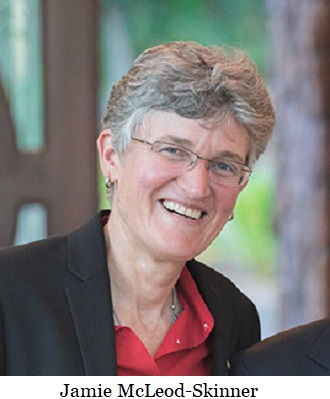
Leah Feldon is currently the interim director at DEQ. She entered public service at DEQ in the Office of Compliance and Enforcement in 2005 and became manager of that office in 2009. She served in several other positions at the agency before being named deputy, including special advisor to the director for Cleaner Air Oregon, an initiative by Governor Kate Brown to overhaul air toxics regulations. In that role, she assembled and led a multi-faceted team to deliver Oregon's new air toxics program, legislation, rulemaking and implementation guidance. She earned her law degree from Lewis and Clark Law School in 2004 and her Bachelor of Arts from University of Dayton in Ohio. She is a member of the Oregon State Bar and has served on several non-profit boards.
Jamie McLeod-Skinner works as regional emergency coordinator with the Oregon Department of Human Services and is also founding partner and attorney with MS Sage Consulting in Central Oregon. She has 25 years of management experience in public, private and nonprofit sectors. She has a law degree from University of Oregon School of Law; a master's in regional planning from Cornell University; and a Bachelor of Science degree in civil engineering from Rensselaer Polytechnic Institute. She was a candidate for congress in Oregon's fifth district last year.
A D V E R T I S E M E N T

A D V E R T I S E M E N T
The commission will hold a special meeting in February for the finalists to engage with them, as they move toward a final decision. This meeting also will be an opportunity for DEQ staff and the public to hear from both candidates.
Interim director Leah Feldon will remain in her role until a permanent director is appointed.
--Ritch Hanneman| Post Date: 2023-01-22 11:58:08 | Last Update: 2023-01-22 12:35:43 |
“If you don’t live in Oregon, you can travel here to get an abortionâ€
Oregon Secretary of State Shemia Fagan took the opportunity today's anniversary to promote abortion rights. “Today is the 50th anniversary of
Roe v. Wade. It’s going to be a hard day for many of us. Last year, the Supreme Court ended the constitutional right to an abortion. That decision will have devastating impacts today and for many years to come. But we are in this together. I’ve been in this struggle to support access to abortion, and I won’t stop now, said Oregon Secretary of State Shemia Fagan in a statement marking the 50th anniversary of the now-overturned US Supreme Court case.
According to one former legislator, the Secretary is mistaken. "The Supreme Court does not create rights, nor does it end them," said the former legislator who declined to be identified. "Rights are not just a power play, where ruling governments confer rights on subjects. They come from God and are inherent in our humanity."
Secretary Fagan used the anniversary and her office as an opportunity to campaign for access to abortion. “Let’s use this anniversary to take pride in what’s working well in Oregon. In Oregon, abortion is a right. In 2017 Oregon lawmakers passed the Reproductive Health Equity Act, one of the strongest abortion access laws in the country, codifying
Roe v. Wade into state law and making the full range of reproductive health care services more accessible and affordable for all Oregonians. If you don’t live in Oregon, you can travel here to get an abortion if you need one.
“In response to the recent Supreme Court decision, I have directed the Audits Division to evaluate access to safe and legal abortions in Oregon. This new audit will be conducted in 2023. Oregon has made substantive investments in reproductive health care services and is now operating in a new landscape. The audit will examine the risks to Oregon’s sexual and reproductive health care services, with a focus on potential inequities and public health outcomes.
A D V E R T I S E M E N T

A D V E R T I S E M E N T
“I believe the right to control your own body and future is fundamental to our freedom in America. That’s why I will fight to protect the laws we have in Oregon and undo the damage caused by last year’s Supreme Court ruling.â€
--Staff Reports| Post Date: 2023-01-21 11:53:19 | Last Update: 2023-01-22 12:23:17 |
“Defiant leftists can still make their woke utopia workâ€
Editor's note: Andy Norris is a writer and filmmaker living in Tillamook County. Select writings can be found at https://smartfish.substack.com/
The Greater Idaho movement shows no signs of abating, and the democratic process of changing the borders of Oregon and Idaho took another step forward on Tuesday as Bill
SJM2, sponsored by Dennis Linthicum, became public. Though the bill seems to simply invite the governors of Idaho and Oregon to meet and discuss the possibility of a Greater Idaho, if the meeting actually happens it would signal that the issue is indeed being taken seriously. That said, something tells me Governor Kotek would somehow miss that meeting.
The current rift between woke Oregon and conservative Oregon is wider and deeper than Hells Canyon. Indeed, conservative Oregon has watched Democrats, who exclusively govern Portland, destroy a world-class city in just a few short years. Portland is now known worldwide as a crime-ridden hell-hole run by tweakers and teenage gang members of color. Fifteen years ago, a friend of mine studied the success and livability of Portland in a civics class at an Australian university. Portland is now known worldwide as an absolute failure: The City That Works doesn’t work anymore.
I drove a taxi in Portland over the last seven years. I saw every ‘green’ demolition. Old Portland buildings turned to rubble so new buildings designed by and for Californians could be erected, most with no parking and a virtue-signaling solar pad on the roof. In Vietnam the mantra was ‘destroy the village to save the country’, in Portland the mantra is ‘destroy the city to save the polar bear.’ It’s part of that woke guilt thing -- all Americans are racist or otherwise bad and don’t deserve to live in livable cities. And indeed Portland has been and continues to be destroyed by Democrats. During my years in the taxi, driving all over that city every day, I saw every homeless camp erected, some of the areas packed with stolen cars, dozens of stolen bikes, as well as stolen and burned-out boats. There are areas of North Portland that rival the Bronx, N.Y. of my youth. I saw terrorists attempt to burn down the Portland Police Bureau headquarters nightly for an entire summer, the thugs being cheered on by Mayor Ted Wheeler and just about every Democrat in city, county and state government. Even the corrupt bio-tech priest Anthony Fauci encouraged the terrorists, and suggested they stand less than six-feet apart, that it was permissible to break quarantine, and that they should protest to their hearts content -- or at least until the election of Lyin’ Biden.
A D V E R T I S E M E N T

A D V E R T I S E M E N T
Having lived back and forth between Tillamook County and Portland, I have also watched Portland advancing across the coast range. This trend of city folk bringing their Babylonian hell to the country is happening all over the American West, and the popularity of Kevin Costner’s ‘Yellowstone’, which sees Montana ranchers pitted against developers from the city, shows this phenomenon isn’t unique to Oregon. Developers and real estate agents have taken over the city government in Manzanita and are building three-hundred new, woke, ‘cluster housing’ units in what was once a small, cozy beach town. And a billionaire developer from California has reportedly bought two of the largest dairy farms in the Nehalem Valley. Look for more woke ‘cluster housing’ for leftist/communist Californians to move into. And if you go to Seaside keep your hands on your purse and keep your car doors locked. The tweaker crowd has arrived out of Portland and that city has an increasing number of abandoned RVs and drugged-out folks wandering along Highway 101.
And herein lies my problem with the Greater Idaho movement. Why the hell are ya’ll gonna abandoned the rest of us? That is
not okay! Please don’t leave us, please hear me out first! I have an outstanding idea! Instead of Greater Idaho, how about Lesser Portland? Please?? Let me explain.
A separation of governance is clearly needed, and I think I figured out a way to make it happen. I’ve crafted this idea to make it most-favorable to the Democrats of Portland, so they can continue to destroy their former world-class city in rainbow-colored peace while leaving the rest of the state alone. My idea is modeled after the
CHAZ movement up in Seattle. Did you hear about it, during the height of the domestic terrorist attacks from the Black Lives Matter communists and Antifa fascists? CHAZ was great! It was an area of Seattle up on Capitol Hill that was designated by the domestic terrorists as the Capital Hill Autonomous Zone. The first thing the anti-border crowd did was erect a border so only CHAZ sympathizers -- woke folk -- were allowed inside. Smart! Borders, great idea! Anyway, CHAZ was a riot
-- excuse the pun -- with the then mayor of Seattle, Jenny Durkan, even likening the terrorist camp to the summer of love of 1969. But CHAZ only lasted a couple of weeks. The terrorists chased out the local police, leaving the precinct empty, and the crime and the murder and the rape and all that stuff quickly made the utopia unlivable. Four shootings later, one involving teenagers, the cops moved in and CHAZ was no more.

But I know the defiant leftists can still make their woke utopia work, and I have developed a potential framework. First, our new utopia needs a name. Personally, I like Wokeland. It just rolls off the tongue, like ‘Homeland’ of the Third Reich. And perhaps, one day, Wokeland will become the ‘progressive’ version of the mystical land of Thule. Second, like CHAZ, we need to erect borders around Wokeland. This wall will not be built to keep Portlanders inside Wokeland. They will still be free to leave their safe space and spend their tourist dollars in rural Oregon. The wall around Wokeland will be purposed to keep rural Oregonians out. Genius, right? Hell, most of us don’t go the hipster paradise anymore anyhow, let them wallow in their self-righteousness in peace. To keep Wokeland pure, they can scan QR codes on every phone of those wanting entry into Wokeland, and they can requiring a social credit score that nobody in rural Oregon could ever possibly achieve, in good conscience. Those running Wokeland can mask their children all day at school, they can require vaccines to play pickelball, they can ban the PPB’s gun task force and gang task force because they are racist, and then they can revel in their anti-cop quadrupled homicide rate. The woke folk can ban all cars, mandate more bike lanes that nobody uses because they are actually purposed for Big Tech droid delivery, and they can buy ten-thousand more tents for the tweakers that break into their houses and steal their cars, etc., etc.
The creation of Wokeland will allow woke folk to continue their ground-breaking experiment in civics without any encumbrance from the conservative minds to the east. As the ridiculous pro-gangster, pro-tweaker
Measure 114 shows, there is a clear need to separate the governance of the woke form the governance of the conservative. The creation of Wokeland is an idea that should be explored, and at the very least an exploratory committee should be formed. Oregonians can come together and make Wokeland happen, we can do it, I know we can, and then the woke folk can continue down their spiraling drain of failed ideology without taking the rest of Oregon with them.
 --Andy Norris
--Andy Norris| Post Date: 2023-01-21 11:25:22 | Last Update: 2023-01-21 11:51:46 |
Committee faces challenges to compete for a share of $280B
Oregon is poised to be a leader in US semiconductor research, design, and production, and to reap historic benefits from the Biden-Harris-led CHIPS & Science Act, a $280 billion investment designed to advance U.S. global leadership in technology and supply chains.
The Oregon legislature is taking advantage by forming a special Joint Semiconductor Committee lead by co-chairs Senator Janeen Sollman (D-Hillsboro) and Representative Janelle Bynum (D-Clackamas County), along with Vice Chairs Senator Tim Knopp (R-Bend) and Representative Kim Wallan (R-Medford).
The Oregon Semiconductor Competitiveness
Task Force reports that Oregon is third at 15 percent of the nation’s employment and first in workforce location quotients in the semiconductor industry. Senator Ron Wyden attributes success for the industry is in federal tax incentives. The credits the state has given to Intel has, in turn, helped Intel support more than 50 percent of small businesses in Oregon as their suppliers.
The task force presented a vision of securing Oregon’s position as a global capital of semiconductor Industry and provide opportunities to create more family wage jobs above the median wage and a stronger, more deliberately equitable statewide economy through the advanced manufacturing sector. New industry investments could broadly impact Oregonians across the state—expanding high-wage, equitable employment opportunities in all regions and creating significant new tax revenues for critical priorities like homelessness, affordable housing, and education.
“Semiconductors represent nearly half of Oregon’s exports by value,†said Senator
Sollman. “While more than 37,000 Oregonians work directly in computer &
electronics manufacturing, millions more benefit from the industry’s economic ripple effects and significant tax revenues.â€
A D V E R T I S E M E N T

A D V E R T I S E M E N T
The Committee is preparing to advance legislation, but is faced with two challenges:
- It is more expensive to build facilities in Oregon.
- Other states have updated their incentive tools to better match industry needs, including upfront cash and R&D tax credits.
“Oregon has a generational opportunity to advance shared prosperity and opportunities for workers of all backgrounds,†said Representative Bynum. “Semiconductor jobs pay more than any other manufacturing sector, and nearly half of these jobs require an associate degree or less. By investing in industry growth and development of a diverse, talented workforce, we will change lives for the better.â€
The joint committee meetings are scheduled for Monday and Wednesday at 5pm in room HR F in the state capitol.
--Donna Bleiler| Post Date: 2023-01-21 11:15:39 | Last Update: 2023-01-21 13:39:28 |
Your tax dollars at work
When shots are whizzing about your head you do not have time to think about the full scene of the battle, much less the state of the war. In the war for parental rights and childhood innocence the battleground is the government schools, and in Tillamook County the parents and the students are losing, according to some.
Shouldn’t locally funded schools reflect the values of their patrons? Yes, but herein lies the problem: Government schools are becoming less locally funded making them subject to the demands of the state and the federal government. Educrats (elected leaders and appointed bureaucrats) are issuing a multitude of policies to be implemented in local schools. And what is the focus of the state and federal policies? High levels of reading comprehension? Mathematical excellence? Scientific achievement? Nope, its gender expansiveness.
Gender expansive is the edusphere’s fancy way of saying LGBTQAI2S+ without fear of excluding some new gender, unless it is plain male and female. Oregon, who proudly leads the way in legalizing and legitimizing all things that are harmful and transgressive, has recently updated their Supporting Gender Expansive Students Guidance for Schools.Â
The goal of these policies is that it “clarifies new and evolving laws and policies.†What new laws and policies? Here is a review of relevant federal and state laws and their funding.
A D V E R T I S E M E N T

A D V E R T I S E M E N T
1.
The Feds and the Biden Administration. During his presidential campaign, President Biden vowed to support transgender children. One way his administration followed through was the changing of TITLE IX language in June 2021 to require all federal funded programs to be “free†of discrimination of gender identity. In fact, the Biden Administration assigned the USDA Free Lunch Program as the enforcement agent of “prohibiting discrimination based on...gender identity.†Here discrimination includes discriminating against boys (or 18-year-old high school students) from using girls’ private spaces. Locally, Nestucca Valley School Superintendent stated in response to this concern that “there would be a lot of hungry kids†without the free lunch program. But the school administration never approached the local agricultural community it serves with this issue.
Of course, the TITLE IX language extends to sports. Protecting women’s sports was the original intent of TITLE IX. The TITLE IX change was its own controversy, as it received the most public comments ever on a proposed rule change, but somehow lost thousands of them. Presumably, because they did not have time to make the legally required responses to the public comments.Â
2.
Oregon Department of Education. If one finds the behavior of the Biden Administration contemptible, the Oregon Department of Education is intolerable. Oregon was one of the first states to pass “Comprehensive†Health Education in 2016. Following, Comprehensive Health was the appearance of School Based Health Clinics. These clinics are generally on school grounds and can offer services for elementary students with parental permission, mental health services without parental notification starting at 14, and
all services to 15 year olds without parental notification. While these clinics cannot perform surgeries, they can administer vaccines and write prescriptions for antibiotics, birth control, hormones, etc. Neah-Kah-Nie already operates a school based health clinic, and Nestucca has agreed to work towards opening one within the district. Nationally, Planned Parenthood has also helped fund these clinics, as well as state “grantsâ€.
The state heavily funds most schools in Oregon. There are a few exceptions, like Nestucca, that rely on timber sales for base funding. So, if a school is in non-compliance with ODE policy all funding could be threatened.
3.
Local School District Personnel. While many government school staff members are not supporters of the gender expansive agenda, to speak out or refuse to promote gender expansiveness is to risk termination. Some schools and administrators give leeway to classroom teachers and aids. However, the unfortunate reality is that newly graduated teachers are products of 16 years of government indoctrination: A potent mix of Marxist anti-family and anti-capitalist views. Furthermore, teacher unions try to strong arm all teachers into membership and their prevailing doctrines. Compounding all these issues is the exodus of the boomer generation. Furthermore, highly educated school nurses and counselors may be more aggressive supporters of gender expansiveness than the educational staff members.Â
School staff have also routinely thwarted laws requiring school based clubs to be student initiated, and started PRISM (formerly known as the Gay Straight Alliance, or GSA) Clubs. In the case of the Nestucca’s PRISM club, it was reportedly the school nurse that started the club. These clubs meet during the school day. School employees do not consider parental consent or notification of students in these clubs. But they do solicit the community to pay for their activities through fundraisers, like See’s Candy Sales. Nationally, these clubs have been prime instigators for convincing children as young as middle school to begin transitioning, without parental approval, and take field trips to Gay Pride parades. Some events attended by members of PRISM are not limited to minors. In other words, PRISM clubs have exposed children to sexually inappropriate materials and adults across the country.
Who is paying for that? Well, your donations, and to some extent tax dollars, as school property are used and school paid employees must be sponsors of these clubs. PRISM also holds pride events, such as was held in the commons area at Nestucca last June and special graduation events for Tillamook students. These events often force non-Prism club members to “celebrate†their LGBTQ+ friends via peer pressure. Individual students’ consciences and parental preference is not considered.
A D V E R T I S E M E N T

A D V E R T I S E M E N T
School nurses can also aid students in finding resources to obtain hormones or receive necessary psychological evaluations for further procedures that can be performed on minors at OHSU Doernbecher Children’s Hospital. Tillamook County Health Department also recently hired a gender-affirming counselor. Local schools have a long history of transporting students to the Health Department for services. The state can legally pay for transgender surgeries of 15-year-olds. Which brings us back to the money.
It is very difficult to tally how much money this agenda is receiving from our tax dollars because there is no line item for Gender Expansive programs and the new guidance demands that these programs be cross-curricula. Simply stated, all funds are fungible and able to be leveraged toward this agenda. The USDA Federal Free Lunch Program and Planned Parenthood (they administer hormone treatments to suppress puberty) spent 15 billion in federal funds in 2019. In Oregon, the state spent $9.2 billion this last school year, or about 50% of tax revenues, on government schools. Obviously the majority of dollars are spent elsewhere, but it is easy to understand their financial advantage versus average median individual income in our county at $50,000 per year.
This well-funded ideological war against majority American parental values seems insurmountable. But Americans do not despair. At the Lexington Green on April 19, 1775 Captain John Parker and his 70 militia men faced approximately 1000 trained and armed British soldiers. Parker stood his ground. Soon other colonial militias joined and the patriots won their first battle against the British. Although the war was long and hard, we know who won.
We can either behave like Captain Parker or leave the children to the predations of this ideology. Many have wisely decided to take their children out of the line of fire by sheltering them in private or homeschools, but the adults must stay on the field. Do not cower to accusations of “transphobe†or “bigot,†the children (including the gender expansive children) deserve our protection. Refusing to speak in public against these policies only breeds more cowardice. Yes, they have money and possibly illegitimate “laws†on their side. Nazi Germany had plenty of laws to legitimize their crimes against the Jews. Insist that school boards refuse Gender Expansive policies and dare the state to deny our local public schools funding. File Title IX complaints against the schools for failing to protect female sports and private spaces. Obtain access to all learning materials. Demand for opt-in versus the antiquated opt-out for Marxist Queer indoctrination. Join with other community members and offer our local schools local solutions to reduced or free lunches.
--April Bailey| Post Date: 2023-01-19 05:12:43 | Last Update: 2023-01-19 09:31:23 |
Shemia Fagan concluded that the candidates would have another qualification criteria
Representative David Brock Smith of Port Orford was appointed to his Oregon State Senate seat in Senate District 1 on Wednesday, January 11th at the Roseburg Courthouse. David Brock Smith’s ascent to the seat started on December 16th when Dallas Heard endorsed Smith as successor to his seat.
Members of the Oregon Republican Party had known that Dallas Heard was not planning on running for another term as Senator since March 9, 2022 when Heard stepped down from his position as ORP chair, but there had been no announcement of his intent to resign from the Senate until December 15th. His resignation became effective on January 1st.
The Senator’s two weeks notice during the holiday season gave the Republican Parties of Coos, Curry and Douglas Counties very little time to recruit, vet and promote candidates needed for a competitive special election. In late December the Special Election was scheduled for January 7th, with only a 13 day notice before the election date. This short notice of the meeting date caused the Douglas County Republican Party concern that a mandatory 14 day notice was not met and could allow the Special Election to be nullified.
Within the special election process, the Precinct Committee-person’s of the Republican Party, instead of the general population of voters, were entitled to vote. Each PCPs’ vote represents about 250 constituents within their precinct.
A D V E R T I S E M E N T

A D V E R T I S E M E N T
The Douglas County Republican Party Executive Board managed to activate 5 candidates for the Special Election; Tim Allen, Tom Dole, Doug Mendenhall, Richard Vander Velden, and Todd Vaughn. Curry County had two candidates, David Brock Smith and a Mr. Avery who immediately stepped-down to endorse David Brock Smith. Coos County had no candidates.
The Special Election met in Coquille on January 7th. The meeting opened with an announcement that there was a possible change of the rules to qualify candidates. The Secretary of State, Shemia Fagan, had concluded that because SD1 was redistricted since Senator Heard took office, the candidates would have another qualification criteria added, not only would the candidates have to live within the current SD1 boundaries, by Fagan’s opinion they now needed to live in both the new and old SD1 boundaries. That new restriction would eliminate two of the Douglas County Candidates, Todd Vaughn and Richard Vander Velden.
The voting PCP’s were told that the Legislative Counsel did not agree with the Secretary of State’s interpretation of the Oregon Revised Statutes’ criteria for conducting the election. The PCP’s were instructed at the beginning of the meeting, that even if the two candidates who had been affected by the district boundary change were elected, they might be eliminated when the controversy between the Legislative Counsel and Fagan was settled. Many of the PCP’s present at the election reacted with suspicion that something nefarious was happening behind the scenes.
Before the PCP’s could vote for their choice of nominees, they must vote on how many nominees they will present to the Commissioners of the three counties. According to
ORS 171.051(3), the failure of presenting the County Commissioners with the required minimum of three nominees would result in a failure of the Special Election and the choice of the next State Senator would then default to Governor Tina Kotek. With that to consider, many PCP’s changed their intended vote of presenting 3 nominees and instead voted to present 5 nominees. Todd’s and Richard’s precarious position as being subject to a possible elimination by Secretary of State Fagan may have influenced some PCP’s not to vote for them. The candidates then gave their speeches, were asked several written questions solicited from the PCP’s and the ballots were handed out and eventually tallied.
A D V E R T I S E M E N T

A D V E R T I S E M E N T
In order of the highest number of votes, the winning nominees presented to the County Commissioners were: David Brock Smith at 16890.87, Tim Allen at 13385.82, Richard Vander Velden at 9975.45, Todd Vaughn at 8615.39 and Tomas Dole at 8508.38. When the Douglas County vote was separated out from the three counties, Tim Allen was in a decisive lead at 9715.87 over the next contender, David Brock Smith at 8030.29. Since the Douglas County Commissioners wielded 73.58 % of the vote by population, Tim Allen seemed to have the edge.
On January 11th, the County Commissioners met at the Douglas County Courthouse to appoint the nominee of their choice at the Senate District Meeting. The meeting was recorded on video on the Douglas County website.
At the Senate District Meeting the first order of business was to decide the controversy between the Legislative Counsel and Secretary of State, Fagan. Commissioner Tim Freeman and County Clerk Dan Loomis referred to the Oregon Constitution and ORS to support the Secretary of States’ position to eliminated Richard Vander Velden and Todd Vaughn. The
Oregon Constitution Article IV 3(2)(c) and Section 6(6)(8)ORS 171.068(2) and
ORS 171.060(1) were cited to determine if residency requirements were met.
Freeman also cited an email sent by the Secretary of State two days earlier on January 9 at 4:39 pm. The way Tim Freeman read the email, it relied on ORS 171.106, but that statute is not listed within ORS Chapter 171 on the Oregon Legislature’s website. Commissioner Tim Freeman referred to the conflicting decisions between the Legislative Counsel and Secretary of State Fagan as “what seemed to be contrary, really was not.†The Legislative Counsel had added two caveats that allowed for the qualification of the candidates under certain conditions. Commissioner Chris Boice motioned to “strike the two disqualified candidates from the slate and only hear from the 3 candidates who meet all three qualifications.†The motion passed unanimously.
The three remaining nominees gave five minute speeches and answered questions from the nine Commissioners. The Commissioners then voted unanimously for David Brock Smith.
Near the end of the proceeding, Tim Freeman did apologize for the confusion caused by the Secretary of State Fagan at both the Special Election and the Senate District Meeting. Tim Freeman stated that if they had not had the five nominees, the two nominees who were eliminated would have qualified under one of the caveats provided by the Legislative Counsel.
At the end of this Senate District Meeting, Tim Freeman stated that in the last 8 years, the Douglas County Commissioners have appointed 4 legislative positions, and 1 of each of the following; a clerk, a surveyor, an assessor, a treasurer and a commissioner for a total of nine positions. By the time the Commissioners appoint the vacant House of Representatives seat left by David Brock Smith, it will be 5 legislative seats and a total of 10 elective positions.
Resignation from elected positions can be timed to allow the election of a replacement through the general election, or the timing can result in the need for a special election. If endorsements, special elections and appointments are used as a political strategy to bypass an election by the people, it results in the disenfranchisement of other candidates and the voters.
--Terry Noonkester| Post Date: 2023-01-18 08:51:57 | Last Update: 2023-01-18 09:43:15 |
“This is not the Oregon I was raised in, know, and loveâ€
During a joint press conference with Speaker Dan Rayfield (D-Corvallis) and Majority Leader Julie Fahey (D-Eugene), House Republican Leader Vikki Breese-Iverson (R-Prineville) announced the
2023 House Republican Legislative Priorities.
Leader Breese-Iverson began by highlighting the current status of our state.
“It is no secret that Oregon is at a crossroad. Despite record funding for our public education system, we continue to rank near the bottom of the national average… Oregon farmers and ranchers produce over 13 percent of our Gross Domestic Product, and even though we continue to hear about food uncertainty for many Oregonians, these producers continue to be sent a message that their farms and ranches are not valued in our state. This is not the Oregon I was raised in, know, and love,†according to Leader Breese-Iverson’s remarks as prepared.
The Republican Leader identified four key priorities for the 2023 Legislative Session:
- Prioritizing Fiscal Responsibility
- Addressing Housing, Homelessness, and Mental Health
- Supporting Law Enforcement and Increasing Community Safety
- Protecting Rural Oregon and Our Natural Resource Economy
“Although there are no shortage of issues to address, we are ready to get to work. Oregonians deserve nothing less,†according to Leader Breese-Iverson’s remarks as prepared.
--Staff Reports| Post Date: 2023-01-18 06:41:14 | Last Update: 2023-01-17 19:51:57 |
Read More Articles














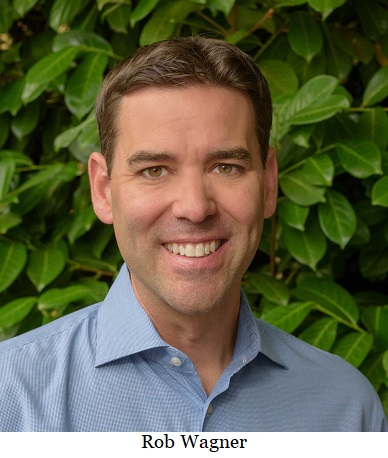


 Leah Feldon is currently the interim director at DEQ. She entered public service at DEQ in the Office of Compliance and Enforcement in 2005 and became manager of that office in 2009. She served in several other positions at the agency before being named deputy, including special advisor to the director for Cleaner Air Oregon, an initiative by Governor Kate Brown to overhaul air toxics regulations. In that role, she assembled and led a multi-faceted team to deliver Oregon's new air toxics program, legislation, rulemaking and implementation guidance. She earned her law degree from Lewis and Clark Law School in 2004 and her Bachelor of Arts from University of Dayton in Ohio. She is a member of the Oregon State Bar and has served on several non-profit boards.
Leah Feldon is currently the interim director at DEQ. She entered public service at DEQ in the Office of Compliance and Enforcement in 2005 and became manager of that office in 2009. She served in several other positions at the agency before being named deputy, including special advisor to the director for Cleaner Air Oregon, an initiative by Governor Kate Brown to overhaul air toxics regulations. In that role, she assembled and led a multi-faceted team to deliver Oregon's new air toxics program, legislation, rulemaking and implementation guidance. She earned her law degree from Lewis and Clark Law School in 2004 and her Bachelor of Arts from University of Dayton in Ohio. She is a member of the Oregon State Bar and has served on several non-profit boards.

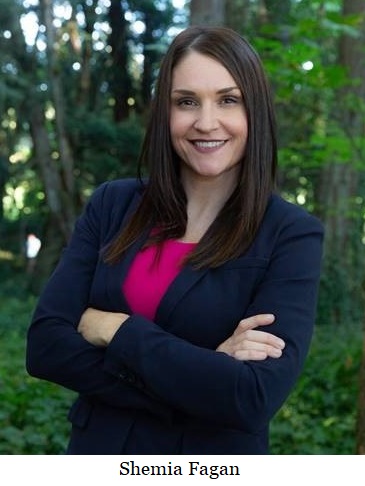

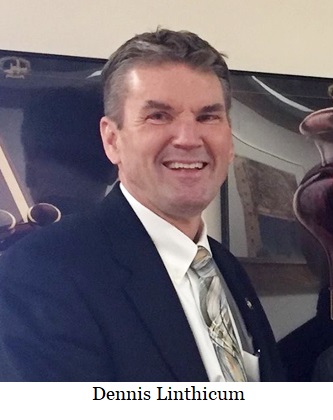

 But I know the defiant leftists can still make their woke utopia work, and I have developed a potential framework. First, our new utopia needs a name. Personally, I like Wokeland. It just rolls off the tongue, like ‘Homeland’ of the Third Reich. And perhaps, one day, Wokeland will become the ‘progressive’ version of the mystical land of Thule. Second, like CHAZ, we need to erect borders around Wokeland. This wall will not be built to keep Portlanders inside Wokeland. They will still be free to leave their safe space and spend their tourist dollars in rural Oregon. The wall around Wokeland will be purposed to keep rural Oregonians out. Genius, right? Hell, most of us don’t go the hipster paradise anymore anyhow, let them wallow in their self-righteousness in peace. To keep Wokeland pure, they can scan QR codes on every phone of those wanting entry into Wokeland, and they can requiring a social credit score that nobody in rural Oregon could ever possibly achieve, in good conscience. Those running Wokeland can mask their children all day at school, they can require vaccines to play pickelball, they can ban the PPB’s gun task force and gang task force because they are racist, and then they can revel in their anti-cop quadrupled homicide rate. The woke folk can ban all cars, mandate more bike lanes that nobody uses because they are actually purposed for Big Tech droid delivery, and they can buy ten-thousand more tents for the tweakers that break into their houses and steal their cars, etc., etc.
But I know the defiant leftists can still make their woke utopia work, and I have developed a potential framework. First, our new utopia needs a name. Personally, I like Wokeland. It just rolls off the tongue, like ‘Homeland’ of the Third Reich. And perhaps, one day, Wokeland will become the ‘progressive’ version of the mystical land of Thule. Second, like CHAZ, we need to erect borders around Wokeland. This wall will not be built to keep Portlanders inside Wokeland. They will still be free to leave their safe space and spend their tourist dollars in rural Oregon. The wall around Wokeland will be purposed to keep rural Oregonians out. Genius, right? Hell, most of us don’t go the hipster paradise anymore anyhow, let them wallow in their self-righteousness in peace. To keep Wokeland pure, they can scan QR codes on every phone of those wanting entry into Wokeland, and they can requiring a social credit score that nobody in rural Oregon could ever possibly achieve, in good conscience. Those running Wokeland can mask their children all day at school, they can require vaccines to play pickelball, they can ban the PPB’s gun task force and gang task force because they are racist, and then they can revel in their anti-cop quadrupled homicide rate. The woke folk can ban all cars, mandate more bike lanes that nobody uses because they are actually purposed for Big Tech droid delivery, and they can buy ten-thousand more tents for the tweakers that break into their houses and steal their cars, etc., etc.






